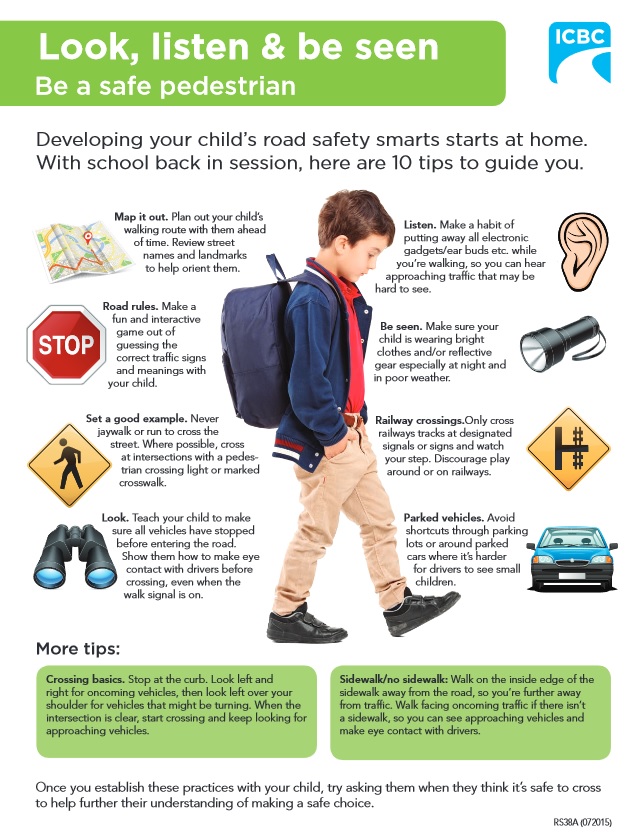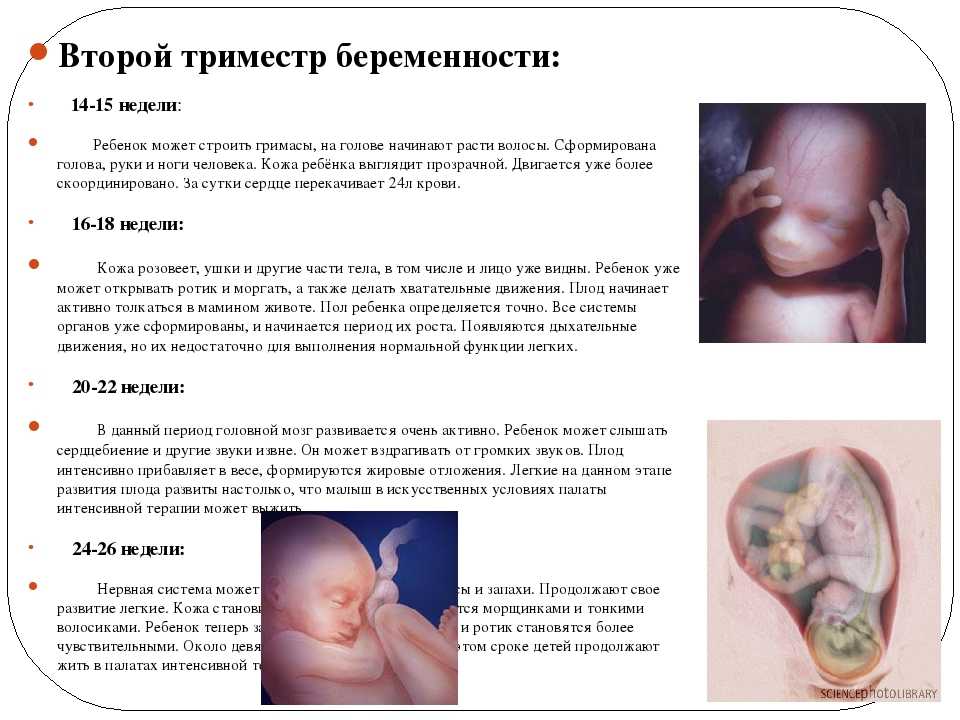How much time do parents spend with their child
Average hours per day parents spent caring for and helping household children as their main activity
PrevNext
Choose another chartActivities by sex and day Average hours per day spent in selected activities by sex and day Percent of the population engaging in selected activities, averages per day by sex and dayActivities by employment status Average hours per day spent in selected activities by employment status and sex Average hours per day spent in selected activities on days worked by employment status and sexActivities by age Average hours per day spent in selected activities by age Average hours per day spent in selected activities by age, men Average hours per day spent in selected activities by age, womenWorking activities for employed persons Average hours employed people spent working on days worked by day of week Percent of employed people who worked by day of week Average hours employed people spent working at home and at their workplace on days worked at these locations Percent of employed people who worked at home and at their workplace on days workedHousehold, caring, and leisure activities Average hours per day spent in selected household activities Percent of the population engaging in selected household activities, averages per day by sex Average hours per day parents spent caring for and helping household children as their main activity Average hours per day spent in selected leisure and sports activities by age Average hours per day spent in selected leisure and sports activities by sex, employment status, and day
This page requires JavaScript to display charts and tables
Show table
Hide table
| Activity | Parents, child under age 18 | Fathers, child under age 18 | Mothers, child under age 18 | Parents, youngest child 6-12 years | Fathers, youngest child 6-12 years | Mothers, youngest child 6-12 years | Parents, child under age 6 | Fathers, child under age 6 | Mothers, child under age 6 |
|---|---|---|---|---|---|---|---|---|---|
Total, caring for and helping household children | 1.43 | 1.02 | 1.76 | 0.97 | 0.68 | 1.20 | 2.24 | 1.62 | 2.79 |
Physical care for household children | 0.55 | 0.32 | 0.73 | 0.25 | 0.14 | 0.33 | 0.97 | 0.57 | 1.32 |
Reading to and with household children | 0.05 | 0.05 | 0.06 | 0.04 | 0.03 | 0.05 | 0.09 | 0.08 | 0.09 |
Playing with household children, not sports | 0.38 | 0.36 | 0.39 | 0.15 | 0.15 | 0.15 | 0.70 | 0.64 | 0.75 |
Activities related to household children's education | 0.13 | 0.05 | 0.19 | 0.22 | 0.10 | 0.31 | 0.10 | 0.03 | 0.15 |
| Note: | |||||||||
Do Parents Spend Enough Time With Their Children?
Recently published research concludes that today’s U.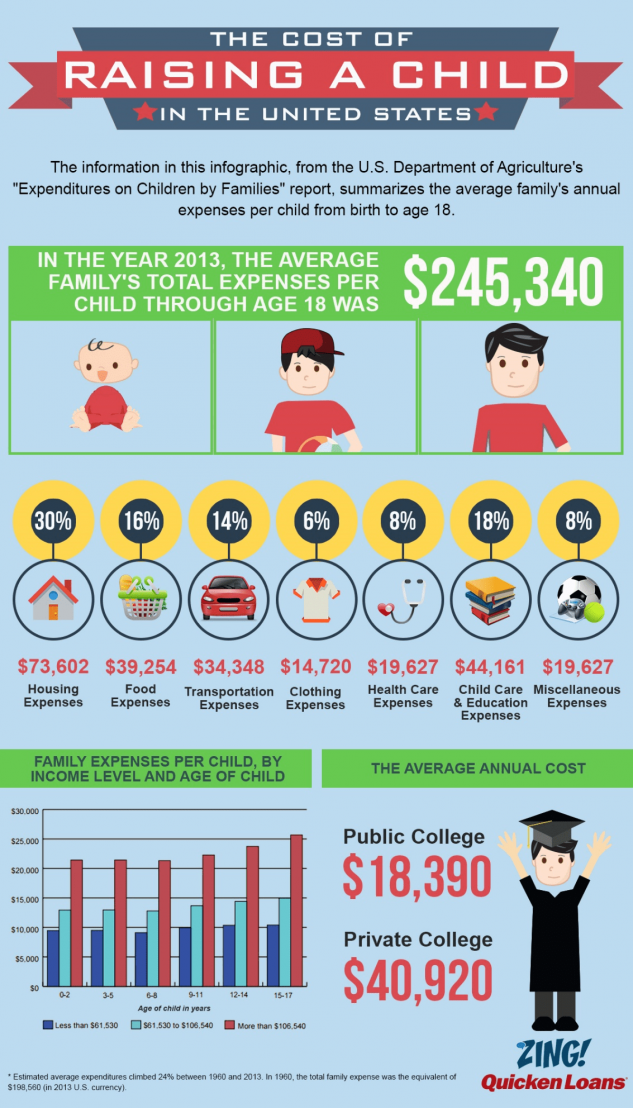 S. mothers and fathers spend at least as many hours caring for their children each week as parents did four decades ago during an era that in the popular imagination was a golden age of family togetherness.
S. mothers and fathers spend at least as many hours caring for their children each week as parents did four decades ago during an era that in the popular imagination was a golden age of family togetherness.
It may seem contradictory, then, that many parents complain of feeling rushed and of not having enough time with their sons and daughters. One reason for this, authors Suzanne Bianchi, John Robinson and Melissa Milkie suggest in their book, Changing Rhythms of American Family Life, is that there is a gap between parents’ self-evaluations and the currently high cultural expectations for “intensive parenting.”
Parents today correctly believe they are busier than mothers and fathers of past decades, according to the authors, who are sociologists at the University of Maryland. Total workloads—the combined hours people spend in paid jobs and unpaid family or household care—”have risen and remain high” for married parents, especially dual-earner couples, and for single mothers.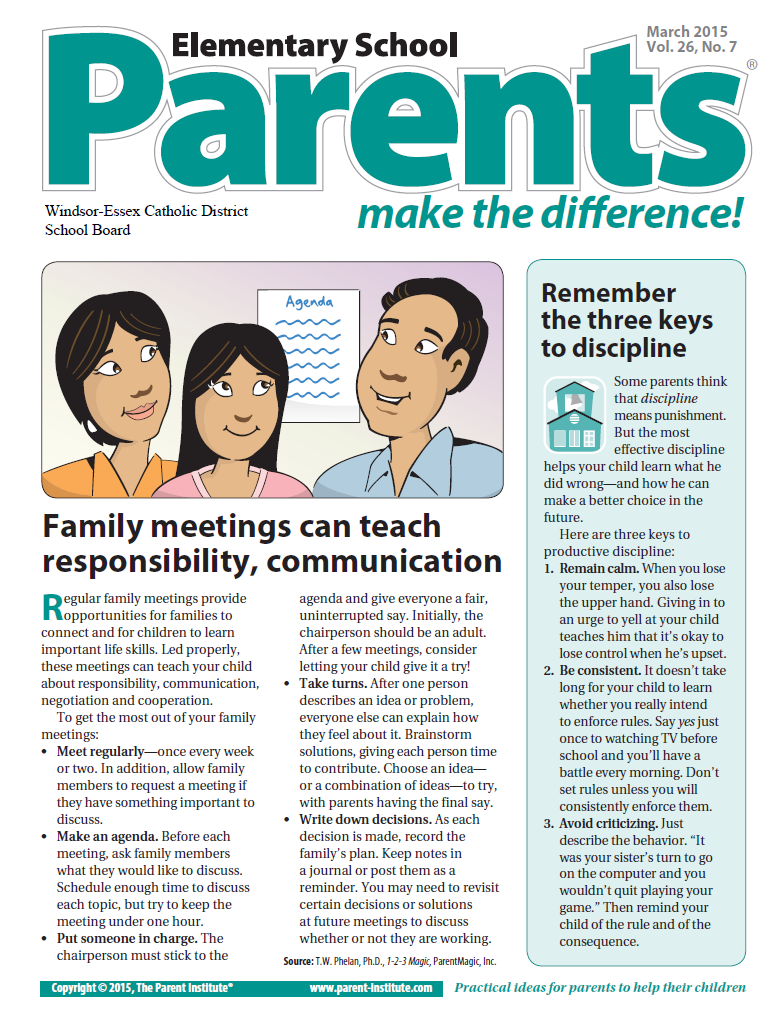 Mothers and fathers have equal total workloads, the authors report, but the mix continues to reflect traditional gender roles. Although fathers have picked up some domestic work, mothers still do more around the house and spend fewer hours in the workplace than fathers do.
Mothers and fathers have equal total workloads, the authors report, but the mix continues to reflect traditional gender roles. Although fathers have picked up some domestic work, mothers still do more around the house and spend fewer hours in the workplace than fathers do.
The authors made extensive use of time diaries kept by parents as part of large research studies, in which a standard series of questions walk respondents through a complete day. The first national-level study was conducted in 1965, and it was replicated in 1975, 1985, and 1995. They drew on other time-diary studies from the late 1990s and early this decade, and made use of the Current Population Survey data on work hours, the 2000 General Social Survey, and other material.
Time diaries indicate that married fathers spent an average 6.5 hours a week caring for their children in 2000, a 153 percent increase since 1965. Married mothers spent 12.9 hours, a 21 percent increase. Single mothers spent 11.8 hours, a 57 percent increase.
These increases are powerful because the figures are for “primary care” where the child is the main focus of attention, not for time spent with the child while doing other things. Time-diary numbers, however, do not say whether mothers are as accessible to their children at home during as many hours as they were in the past.
Child-Care Time Rose Since 1985
The rise in child-care time documented in parents’ diaries began after 1985. Mothers’ child-care hours fell from 1965 to 1985, consistent with an era in which the average number of children per family declined, women’s employment rose sharply, and single parenting increased. Since then, though, mothers with paid jobs and mothers without them have increased their time with their children. Married fathers’ child-care hours changed little until 1985, and rose substantially after that.
The U.S. trend parallels findings of national-level time-diary studies in Canada, the United Kingdom, France, and the Netherlands, as well as limited data from Australia. Both mothers and fathers in those countries have increased their hours with their children, fathers most dramatically.
Both mothers and fathers in those countries have increased their hours with their children, fathers most dramatically.
U.S. mothers and fathers have increased the hours they devote to enriching activities such as reading and playtime, as well as to basic child care such as feeding and dressing. This finding, the authors said, refutes “any notion that quality activities have been sacrificed as time constraints on employed parents and single mothers have increased.”
But in the face of competing demands, child-care time does not just happen: Parents have had to employ a variety of strategies to maintain the hours they spend with their sons and daughters.
To make time, mothers have reduced their housework hours over the years by an amount the authors said matches their increase in paid work hours. They have cut their free time, including hours spent on civic activities, according to time diaries cited by the authors. Employed mothers spend less time with their husbands, and have given up time with friends and relatives.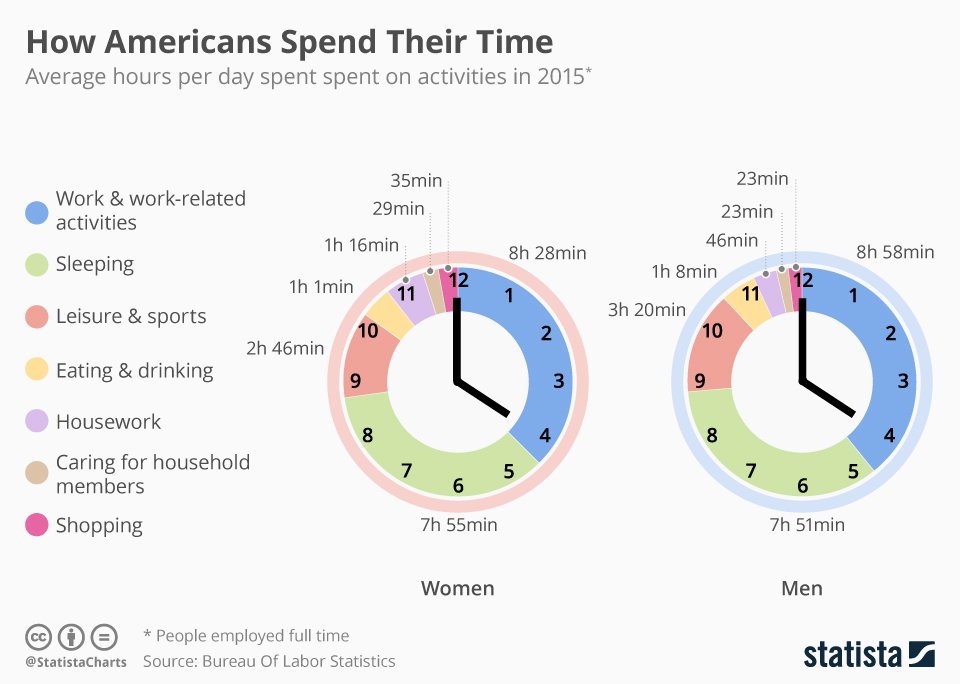 Fathers have reduced the hours they spend on personal care.
Fathers have reduced the hours they spend on personal care.
Another way parents try to make more time for their children is to do two things at once. Time diary comparisons show that parents spent twice as many hours multitasking in 2000 as they did in 1975. During waking hours, “about half of today’s parents’ time is spent doing two or more activities simultaneously,” the authors write.
“They’re doing a good job of fitting it in,” said Milkie, an associate professor of sociology. “They may feel the guilt, and that’s what’s bringing them to take their kid to the grocery store when they don’t have to.’
Mothers More Likely to Feel Rushed
Although time diaries show that mothers and fathers spend about the same amount of time doing two things at once, survey data show that mothers are more likely to report multitasking all the time as well as feeling rushed. Employed mothers feel the time crunch more than those without paid jobs, and single mothers feel the most time-pressed of all. Perhaps, the authors suggest, that is because the complex nature of running a household today means that there never is a moment when something does not need to be done.
Perhaps, the authors suggest, that is because the complex nature of running a household today means that there never is a moment when something does not need to be done.
Parents, especially mothers, may be responding to heightened expectations, the authors said. “If our interpretation is correct, the requirements for effective and good mothering have ratcheted upward at the very time when there are expanded opportunities for women to do other things with their time, such as devoting themselves to fulfilling jobs,” they write.
Especially among middle-class parents, children increasingly are expected to be the center of family life. Today’s parents are expected to monitor their children carefully because fears of abuse and of crime have risen. They are expected to guide and nurture their children through every aspect of growing up, and to be involved in all of their activities. Because the average family now has fewer children than in the 1960s, the investment in each child is greater.
No wonder, then, that 40 percent to 60 percent of parents feel they spend too little time with their children, the authors note. They live in a society, said Milkie, where “you can’t spend enough time with your kids . . . cultural ideals are really feeding into this.”
The authors acknowledge that some of their conclusions go against the grain of popular belief. Although they raise concerns about the strains on parents, especially single mothers, they conclude that some aspects of childrearing have not suffered in the transition to a world where most mothers have joined the labor force.
“Somehow, then, despite concerns of policymakers and others that children are not receiving sufficient parental time,” they write, “parents seem to have compensated for family and work arrangements that at first glance should have taken away from childrearing.”
Reference
Suzanne M. Bianchi, John P. Robinson, and Melissa A. Milkie, Changing Rhythms of American Family Life (New York: Russell Sage Foundation, 2006).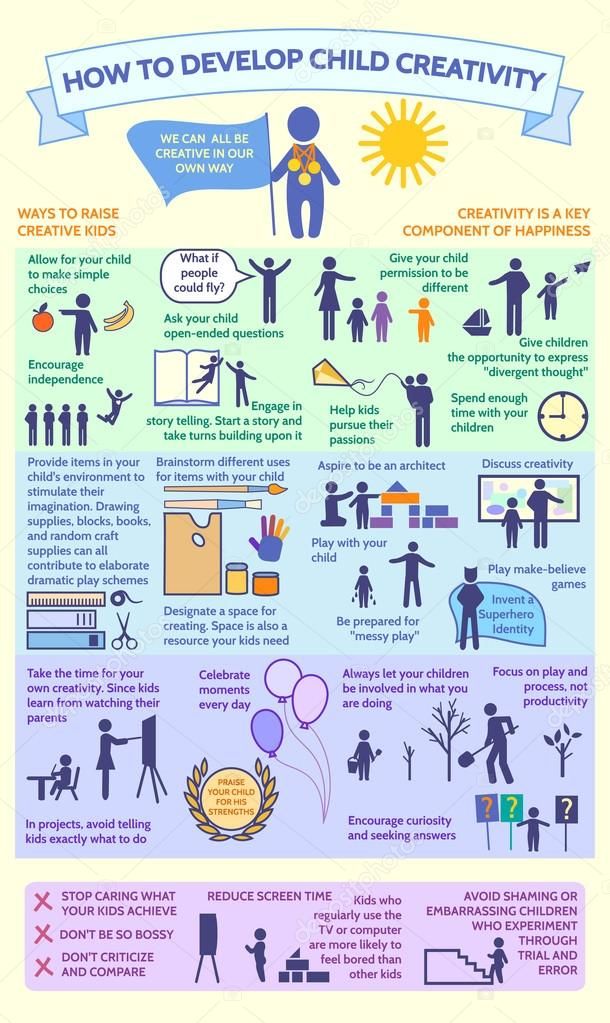
How much time should parents spend with their child to make them happy?
We have put together some ideas on how to spend time with children in a way that makes them happy...
Conscious parenting is a popular topic in society today. We hear and read everywhere that parents should set a personal example, not be distracted when they spend time with children, and support the child in everything. But at the same time, parents also work, experience stress, get tired and solve many tasks every day. As part of the Kinder® Trust global project on communication between parents and children, we figure out how to find strength for time with children and, most importantly, how much time is needed?
Why is it important for children to spend time with their parents in general? Children really constantly ask something, demand to play, evaluate the drawing, help open a new package with a toy, and so on - ad infinitum, every day! But for children, this is absolutely normal, because the attention of parents for a child is a basic need.
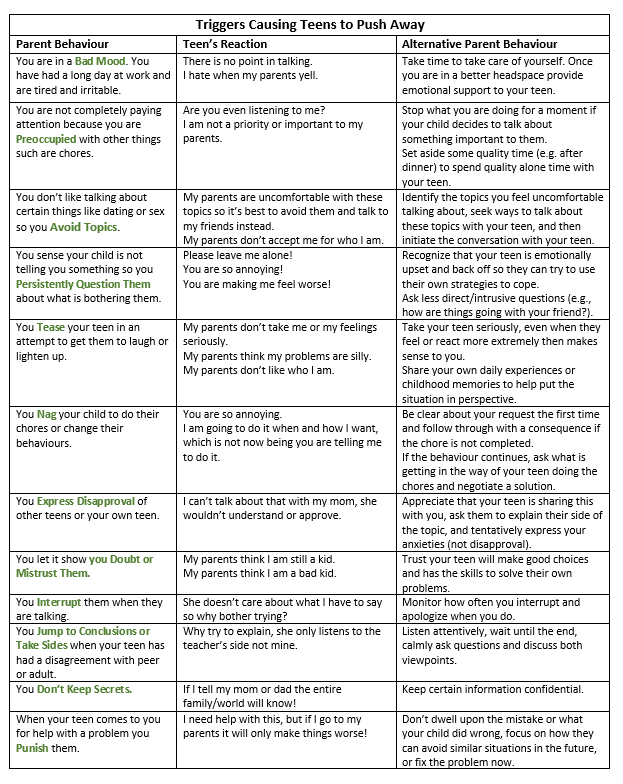 Moreover, scientists have found that children who receive enough attention grow into confident adults.
Moreover, scientists have found that children who receive enough attention grow into confident adults. What the numbers say
Parents blame themselves for not giving enough time to their children in their attempts to make a career, solve everyday problems or at least have a little rest. But in fact, parents now spend significantly more time with their children than they did fifty years ago.
To find out, scientists conducted a study from 1965 to 2012 in Canada, the United Kingdom, the United States, Denmark, Norway, France, Germany, the Netherlands, Italy, Spain and Slovenia. It turned out that at 19At 65, mothers spent an average of 54 minutes a day with their children when nothing else distracted them. In 2012, mothers managed to devote about 104 minutes a day to their child, that is, almost twice as much. Fathers' time with their children has nearly quadrupled—in 1965, dads spent an average of only 16 minutes a day with their children, while today's fathers spend about 59 minutes a day playing and caring for them.
Quality over quantity
You can measure time with children. But what about quality? Research shows that it is the quality, not the quantity, of time with mom and dad that makes kids happy.
And this is true for both mothers and fathers. For example, if fathers really enjoyed caring for their young children, no matter how many minutes a day, then such children had 28% fewer behavior problems at the age of 9-11 than their peers.
What is quality time with children anyway? This is the time when parents do not think about work, everyday problems and are completely focused on communication. And here it’s not even necessary to remove all gadgets - for example, watching a movie or playing video games together can also be such a quality time. For babies and young children, reading and bathing can be such happy moments. With older children, this may be a discussion of a song playing in the car on the radio. It doesn't matter what you do or what you talk about. The most important thing is how close parents are with their children at such moments.
The most important thing is how close parents are with their children at such moments.
The ideal is unattainable. But is he needed?
It turns out that if quality is important, then there is no point in striving for some ideal amount of time with a child. For example, psychologist Amanda Reuther talks about a family where parents made a schedule according to which one of the children once a week goes to bed 15-20 minutes later than the brothers and sisters. And he spends this time with his parents.
They can read or play board games, just chat about anything. This decision allowed each of the children to receive their own personal 15 minutes of quality time with their parents each week. And parents say that it was these 15 minutes that improved relations with each of the children - they began to argue, swear and act up less.
Another psychologist, John Gottman, deduced the optimal ratio of negative and positive moments in parenting for children to grow up happy: 5 to 1. That is, for every quarrel and argument there should be five happy moments.
That is, for every quarrel and argument there should be five happy moments.
And it seems that Russian parents manage to keep such a ratio! The results of the international study Kinder® Barometer, which was conducted jointly with the research company Ipsos in 2019, found that 86% of Russian parents believe that their children are happy, and this opinion of parents is shared by the children themselves.
Experts studied three dimensions of well-being: the emotional state of the child, his sociability and independence. Russian parents pay special attention to raising self-confidence, and also worry about the financial well-being of the child. At the same time, moms and dads are sure that sometimes simple little things are enough to make a child happy.
This is exactly what famous parents are talking about - the heroes of new commercials shot by the Kinder® brand. It turns out that sometimes it’s enough just to be with a child at the moment of his small victories, and this will give him no less positive emotions than going to an amusement park.
Kinder® encourages parents to become filmmakers and photographers themselves and launches the Kinder® Stories project. “Small stories - Big happiness” is the slogan of this action. Parents can shoot videos and take photos of happy moments with their children and share them on Instagram. So that other parents also understand how important sometimes a few seconds of games and fun are for children. The authors of the most interesting photos and videos will win prizes from Kinder®.
How to spend more quality time with your kids
We've put together a few ideas on how to spend quality time with your kids so that they're happy and parents don't waste a lot of money, time and nerves. It turned out to be a nice checklist.
Cook dinner together. Turn your kitchen into a sushi bar or Italian bistro once a week. It's great if children help cook or set the table - usually they are so passionate about the process that they can tell you something really important. As with meals, conversations and exchange of news at the table can become a good tradition.
Do repairs together. Never fix a leaking faucet, change a tire, or paint walls without children. Small home renovations are a great way to spend time with your kids while teaching them useful skills.
Walk together. The next time you need to take the kids somewhere nearby, try walking and discuss what clouds look like and why the wind blows along the way.
Discuss the good parts of the day together. Tell your child how your day went. And in response, ask him what was funny, good or curious about him.
Research: Modern parents spend twice as much time with their children than 50 years ago
Komsomolskaya Pravda
Dom.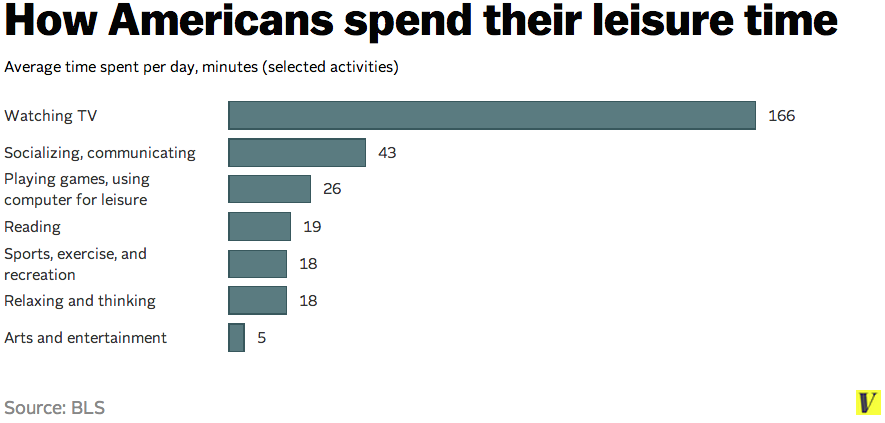 FamilyMom and babyPICTURE OF THE DAY
FamilyMom and babyPICTURE OF THE DAY
Ksenia KONYUKHOVA
January 6, 2018 14:12
Moreover, mothers spend twice as much time looking after and caring for their children as fathers
If in 1965 men spent only 16 minutes a day with their offspring, now it is already 59 minutes. This conclusion was made by sociologists Julia Sani and Dzhutit Treas from the University of California at Irvine.
Researchers analyzed data from 11 countries from 1965 to the present and compared how much time parents gave their children before and now. The study was conducted in Canada, USA, UK, Denmark, Norway, France, Germany, the Netherlands, Italy, Spain and Slovenia.
According to the survey results, in 1965 mothers spent an average of 54 minutes with their children a day. Now this figure has grown to 104 minutes. The results of the fathers are more modest: if in 1965 men spent only 16 minutes a day with their offspring, now it is already 59 minutes.
- This was an unexpected result for us, the authors say. – The fact is that the length of the working day of men has not decreased since the 60s, despite the fact that women have become more active in their own careers and spend more time on work. While working mothers spend less time caring for their children than non-working mothers, overall, attention to children has risen in both America and Europe.
– The fact is that the length of the working day of men has not decreased since the 60s, despite the fact that women have become more active in their own careers and spend more time on work. While working mothers spend less time caring for their children than non-working mothers, overall, attention to children has risen in both America and Europe.
On the other hand, the difference in how much time parents with different levels of education spend with their child has increased. For example, moms and dads with university degrees pay much more attention to their children than those who just graduated from high school.
.Photo: Nail VALIULIN
- This is also a controversial result, since parents with a higher level of education usually have better jobs and can afford to hire a nanny or pay for kindergarten, the authors elaborate in their article.
.Photo: Nail VALIULIN
The only exception to this trend is France. There, parents began to spend less time with their children than 50 years ago. On the other hand, in 1965, French mothers spent almost 100 minutes a day looking after and caring for their child - more than in any other country participating in the study. And it seems that 50 years later they decided that they have every right to take a break from worries.
On the other hand, in 1965, French mothers spent almost 100 minutes a day looking after and caring for their child - more than in any other country participating in the study. And it seems that 50 years later they decided that they have every right to take a break from worries.
Site age category 18+
The online publication (website) is registered by Roskomnadzor, certificate El No. FS77-80505 dated March 15, 2021.
I.O. EDITOR-IN-CHIEF - NOSOVA OLESIA VYACHESLAVOVNA.
I.O. chief editor of the site - Viktor Fedorovich Kansky
Messages and comments from site readers are posted without preliminary editing. The editors reserve the right to remove them from the site or edit them if the specified messages and comments are an abuse of freedom mass media or violation of other requirements of the law.
JSC "Publishing House "Komsomolskaya Pravda". TIN: 7714037217 PSRN: 1027739295781 127015, Moscow, Novodmitrovskaya d.

